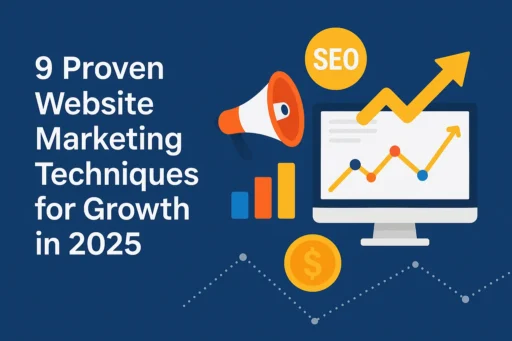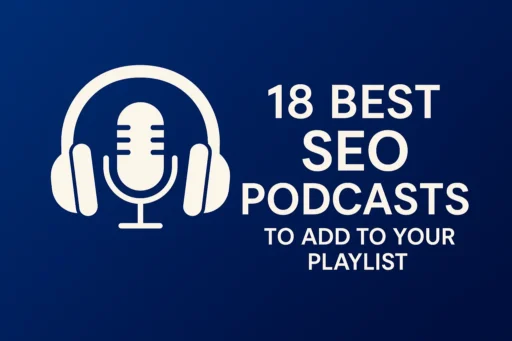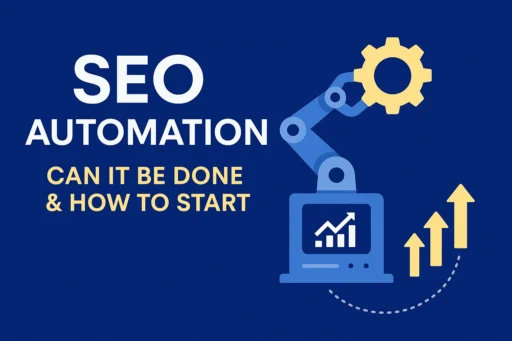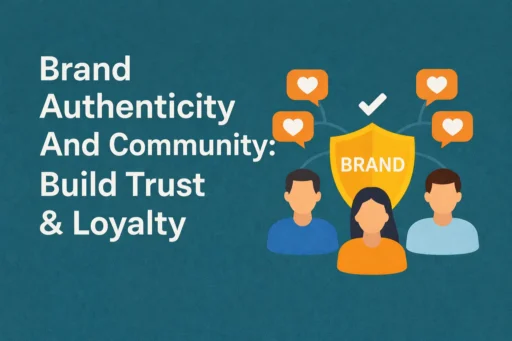Website marketing techniques have evolved dramatically in 2025, with artificial intelligence, personalization, and user experience taking center stage. As digital landscapes shift and consumer behaviors change, businesses need proven strategies to stay competitive and drive meaningful growth. At Search Savvy, we’ve analyzed the latest data and industry trends to bring you actionable techniques that deliver real results.
In this comprehensive guide, you’ll discover how to leverage cutting-edge website marketing techniques that align with today’s AI-powered search engines, voice assistants, and changing consumer expectations. Whether you’re a small business owner or a marketing professional, these strategies will help you maximize visibility, engagement, and conversions in 2025.
How Do Website Marketing Techniques Drive Business Growth in 2025?
Website marketing techniques are the foundation of digital success, combining SEO, content strategy, user experience optimization, and data-driven decision-making. According to recent industry research, 91% of marketers reported that SEO positively impacted their website performance in 2024, and organic search continues to produce an average of 33% of overall website traffic across major industries.
At Search Savvy, we understand that effective website marketing goes beyond basic optimization. It requires a holistic approach that addresses both technical excellence and user-centered design. The techniques we’re sharing today are backed by 2025 data and proven to deliver measurable results.
1. Why Is AI-Powered Content Optimization Essential for Modern Websites?
Website marketing techniques now demand AI integration for competitive advantage. Content optimization has been revolutionized by artificial intelligence, with 68% of businesses reporting increased content marketing ROI through AI adoption. Smart marketers are using AI tools to analyze user intent, predict trends, and create hyper-relevant content that ranks higher in search results.
AI-powered optimization helps identify content gaps, suggests topic clusters, and even personalizes content delivery based on user behavior. The technology analyzes massive datasets to understand what resonates with your target audience, allowing you to create content that answers specific questions and solves real problems. According to Search Savvy’s insights, businesses that leverage AI for content strategy see 3.5x better conversion rates compared to those using traditional methods alone.
Key Actions:
- Implement AI tools for keyword research and topic analysis
- Use predictive analytics to identify trending topics in your industry
- Deploy AI-powered chatbots for 24/7 customer engagement
- Leverage natural language processing to optimize content for voice search
2. How Does Voice Search Optimization Transform Your Website Strategy?
Website marketing techniques must now accommodate the 20% of mobile searches that are voice-activated, with voice commerce projected to reach $164 billion worldwide by 2025. Voice search optimization represents a fundamental shift in how users interact with search engines, requiring websites to adapt their content structure and keyword strategies.
Voice queries tend to be longer and more conversational than typed searches. Instead of searching for “Italian restaurant Chicago,” users ask, “Where’s the best Italian restaurant near me?” This shift demands content that answers specific questions in natural, conversational language. Search Savvy recommends structuring your content around question-based formats, using schema markup to help search engines understand your content context, and optimizing for local searches.
Key Actions:
- Create FAQ pages that address common voice search queries
- Optimize for long-tail, conversational keywords
- Ensure your website loads quickly on mobile devices
- Implement structured data markup for featured snippets
- Focus on local SEO for “near me” searches
3. What Role Does Mobile-First Design Play in Website Marketing?
Website marketing techniques prioritize mobile experiences, as mobile devices account for 62.54% of global organic search traffic in 2025. Google’s mobile-first indexing means your mobile site performance directly impacts search rankings, making responsive design non-negotiable for success.
A mobile-optimized website isn’t just about making your content viewable on smaller screens-it’s about creating an exceptional user experience that drives engagement and conversions. Research shows that websites loading in just 1 second convert three times more effectively than those taking 5 seconds. Search Savvy emphasizes that mobile optimization encompasses page speed, navigation simplicity, touch-friendly interfaces, and streamlined checkout processes.
Key Actions:
- Implement responsive design that adapts to all screen sizes
- Optimize images and videos for faster mobile loading
- Simplify navigation with mobile-friendly menus
- Use larger fonts and buttons for easy touch interaction
- Test your site regularly on various mobile devices
4. How Can Video Marketing Boost Your Website’s Engagement?
Website marketing techniques increasingly leverage video content, with 95% of video marketers reporting positive ROI and 89% of businesses using video as a core marketing tool in 2025. Video content captures attention, explains complex concepts quickly, and significantly increases the time users spend on your website.
Pages featuring video attract 157% more organic traffic than those without, and video-enhanced content sees a 41% higher click-through rate. Short-form videos under 60 seconds are particularly effective on social platforms, while longer educational videos build authority and trust on your main website. At Search Savvy, we’ve seen clients achieve remarkable engagement by incorporating product demos, customer testimonials, and behind-the-scenes content into their website strategy.
Key Actions:
- Create short-form videos for social media distribution
- Embed educational videos on key landing pages
- Use video testimonials to build social proof
- Optimize video titles, descriptions, and tags for SEO
- Include transcripts to improve accessibility and search visibility
5. Why Is Personalization Critical to Website Marketing Success?
Website marketing techniques that incorporate personalization see 94% of marketers reporting increased sales, making it one of the most impactful strategies in 2025. Personalization involves tailoring content, recommendations, and experiences based on user behavior, preferences, and demographics.
Modern consumers expect brands to understand their needs and deliver relevant experiences. Personalization can range from simple tactics like addressing visitors by name to sophisticated AI-driven recommendations that predict what products or content users want next. Companies using advanced personalization strategies report 40% higher engagement rates and 25% better conversion rates compared to those using generic approaches.
Key Actions:
- Segment your audience based on behavior and demographics
- Use dynamic content that changes based on user preferences
- Implement recommendation engines for products or content
- Create personalized email campaigns triggered by website actions
- Use retargeting to show relevant ads based on browsing history
6. How Does Technical SEO Impact Your Website’s Visibility?
Website marketing techniques require solid technical foundations, as 70% of all clicks go to the first five organic results. Technical SEO ensures search engines can crawl, index, and understand your website effectively, directly impacting your visibility in search results.
Technical optimization includes site speed, mobile responsiveness, secure connections (HTTPS), XML sitemaps, structured data, and fixing broken links. Research indicates that 35% of websites have slow page loading speeds, creating a significant opportunity for businesses that prioritize technical excellence. According to Search Savvy’s analysis, technical SEO improvements often deliver quick wins, with many clients seeing 25% traffic increases within months of addressing critical issues.
Key Actions:
- Conduct regular technical SEO audits
- Fix broken links and redirect chains
- Optimize site architecture for easy navigation
- Implement HTTPS across your entire site
- Create and submit XML sitemaps
- Use structured data markup for rich snippets
7. What Makes Content Marketing a Cornerstone of Website Growth?
Website marketing techniques centered on quality content generate 3 times as many leads as outbound marketing while costing 62% less. Content marketing builds authority, attracts organic traffic, and nurtures leads through every stage of the buyer journey.
The key to successful content marketing lies in creating value for your audience rather than simply promoting your products. Educational blog posts, comprehensive guides, infographics, and industry research establish your brand as a trusted resource. Businesses that blog consistently receive 55% more website visitors than those that don’t, and content marketing delivers an impressive $7.65 return for every $1 spent.
Key Actions:
- Develop a content calendar aligned with audience interests
- Create comprehensive guides that address specific pain points
- Repurpose content across multiple formats (blog to video, etc.)
- Update existing content regularly to maintain relevance
- Use data and original research to create link-worthy content
8. How Do Interactive Elements Increase Website Engagement?
Website marketing techniques incorporating interactive content deliver 520% ROI and generate 2x engagement rates compared to static content in 2025. Interactive elements like quizzes, calculators, polls, and configurators keep users engaged longer and provide valuable data about their preferences.
Interactive content transforms passive readers into active participants, creating memorable experiences that encourage sharing and return visits. For example, a mortgage calculator on a financial services website not only provides value to visitors but also captures lead information and demonstrates expertise. Search Savvy has found that websites with interactive tools see significantly lower bounce rates and higher conversion rates than those relying solely on text and images.
Key Actions:
- Add calculators or assessment tools relevant to your industry
- Create quizzes that provide personalized recommendations
- Implement interactive infographics that tell visual stories
- Use polls and surveys to gather audience insights
- Develop product configurators for complex offerings
9. Why Is Answer Engine Optimization (AEO) the Future of Search?
Website marketing techniques must evolve beyond traditional SEO to embrace Answer Engine Optimization, as AI Overviews now appear in 30% of Google search results as of January 2025. AEO focuses on providing direct, concise answers that AI-powered search engines can extract and present to users.
Unlike traditional SEO that aims for clicks to your website, AEO positions your brand as the authoritative source for specific questions, even when users don’t visit your site. This approach is crucial as search behavior shifts toward conversational queries and zero-click results. Research shows that 52% of content referenced in Google’s AI Overviews comes from pages ranking in the top 10, emphasizing the importance of high-quality, well-structured content.
Key Actions:
- Structure content with clear questions and concise answers
- Use schema markup to help AI understand your content
- Create comprehensive FAQs addressing common queries
- Optimize for featured snippets with bullet points and lists
- Focus on E-E-A-T (Experience, Expertise, Authoritativeness, Trustworthiness)
- Monitor your visibility in AI-powered search tools
How Can These Website Marketing Techniques Work Together?
Website marketing techniques deliver maximum impact when implemented as an integrated strategy rather than isolated tactics. The most successful businesses in 2025 combine technical excellence with compelling content, user-centered design, and data-driven optimization.
At Search Savvy, we emphasize the importance of continuous testing and refinement. Digital marketing is not a “set it and forget it” endeavor-it requires ongoing monitoring, analysis, and adjustment based on performance data and changing market conditions. Start by implementing one or two techniques that align with your business goals, measure results, and expand your efforts as you gain momentum.
Frequently Asked Questions About Website Marketing Techniques
What are the most cost-effective website marketing techniques for small businesses in 2025?
Content marketing and SEO offer the highest ROI for small businesses, with SEO converting 84.62% more users than PPC and content marketing generating leads at 62% lower cost than traditional methods. Start with optimizing existing content, creating valuable blog posts, and improving technical SEO fundamentals before investing in paid advertising.
How long does it take to see results from website marketing techniques?
Results vary by technique, but most strategies require 3-6 months for significant impact. Technical SEO fixes can show improvements within weeks, while content marketing typically builds momentum over 6-12 months. The average page needs 2+ years to reach position #1 in competitive niches, emphasizing the importance of consistent, long-term effort.
Should I focus on SEO or paid advertising for my website?
Website marketing techniques should ideally combine both approaches. SEO drives over 1,000% more traffic than organic social media and delivers sustained results over time, while paid advertising provides immediate visibility and is excellent for testing messages and targeting. Most successful businesses allocate 70% of their budget to SEO and content while using paid ads for specific campaigns and rapid testing.
How important is mobile optimization for website marketing in 2025?
Mobile optimization is absolutely critical, with mobile devices generating 62.54% of global organic search traffic. Google uses mobile-first indexing, meaning your mobile site determines your search rankings. Websites that fail to optimize for mobile risk losing more than half their potential traffic and face lower search visibility.
What role does AI play in modern website marketing?
AI has become essential to competitive website marketing, with 67% of marketers using AI to improve efficiency and quality. AI powers content creation, personalization, predictive analytics, chatbots, and search optimization. Businesses leveraging AI report 68% better ROI, making it a critical investment for 2025 and beyond.
How can I measure the success of my website marketing techniques?
Track key performance indicators including organic traffic growth, conversion rates, bounce rate, average session duration, keyword rankings, backlinks, and ROI. Use tools like Google Analytics, Google Search Console, and specialized SEO platforms to monitor performance. Focus on metrics tied to business goals-not just vanity metrics like page views-to accurately assess the impact of your marketing efforts.
Conclusion: Building Your Website Marketing Success in 2025
Website marketing techniques have evolved into sophisticated, data-driven strategies that demand continuous adaptation and improvement. The nine proven techniques outlined in this guide-AI-powered optimization, voice search readiness, mobile-first design, video marketing, personalization, technical SEO, content marketing, interactive elements, and answer engine optimization-form the foundation of successful digital marketing in 2025.
Success doesn’t require implementing all these strategies simultaneously. Start with a solid technical foundation, create valuable content that serves your audience, and gradually incorporate advanced techniques like AI optimization and personalization as your capabilities grow. According to Search Savvy’s experience working with hundreds of businesses, consistent execution of even a few key techniques delivers better results than sporadic implementation of many.
The digital landscape will continue evolving, but the core principle remains unchanged: provide genuine value to your audience, optimize for both search engines and human users, and measure what matters. By staying informed about emerging trends and maintaining flexibility in your approach, you’ll position your website for sustained growth and success.
Ready to transform your website marketing strategy? The techniques you’ve learned today are your roadmap to increased visibility, higher engagement, and stronger business results in 2025 and beyond.







